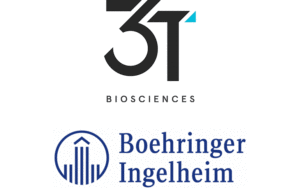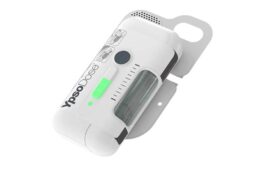 At the dawn of 2023, 3T Biosciences and Boehringer Ingelheim (BI) revealed a strategic collaboration and licensing agreement focused on the discovery and development of next-generation cancer therapies focused on high unmet patient needs.
At the dawn of 2023, 3T Biosciences and Boehringer Ingelheim (BI) revealed a strategic collaboration and licensing agreement focused on the discovery and development of next-generation cancer therapies focused on high unmet patient needs.
The alliance unites 3T Biosciences’ 3T-TRACE (T-Cell Receptor Antigen and Cross-Reactivity Engine) discovery platform and Boehringer Ingelheim‘s focus on cancer cell-directed and immune cell-targeting compounds.
“It’s a collaboration based on the strengths of both companies,” said Stefan Scherer, 3T Biosciences CEO, in an interview at the J.P. Morgan Healthcare Conference.
The TRACE discovery platform
In the alliance, Boehringer Ingelheim will contribute patient-derived TCR data to help 3T with target discovery, identifying antigens with its 3T TRACE discovery platform.

Stefan Scherer
The TRACE platform draws from diverse target libraries and uses machine learning algorithms to identify TCR targets.
Under the terms of the agreement, Boehringer Ingelheim will provide 3T with an upfront payment for R&D support. 3T will be eligible to receive a total of $268 million if it meets discovery, preclinical, clinical, regulatory and commercial milestones. In addition, both companies will be eligible to receive royalties on future product sales under the deal.
Founded in 2017, 3T Biosciences is now a “biotech in transformation,” Scherer said. “We are now switching from being a science-based platform company to a preclinical/clinical-stage biotech.”
Stanford roots
The company co-founders, Marvin Gee and Leah Sibener came up with the idea for the company while studying at Stanford University in the Garcia Laboratory with the Department of Molecular and Cellular Physiology.

Leah Sibener
“So we were kind of on the ground floor” at Stanford, said Sibener, now the company’s VP of therapeutic discovery. Neither Gee, the company’s VP, target discovery, nor Sibener had intended to found a company during their university studies. “It was honestly never an ambition of either of ours, but the science has driven us to where we are now.”
The company’s focus in its first years was to increase the platform’s performance — “basically bringing it to an industry standard,” Scherer said. Over the past two years, the company has ramped up its focus on developing molecules.
The next phase for 3T Biosciences
Having received $40 million in Series A financing in August 2022, the partnership with Boehringer Ingelheim marks the next step in its growth.
“We were previously talking to a lot of very, very early tech-enabled investors,” Sibener said. “And now we’re at a point where we’re talking about scaling the platform and how that translates into therapeutics.”
“At JP Morgan, we want to share that we are ready now to become a clinical-stage biotech,” Scherer said. “We are marching toward an IND for at least one — maybe two molecules very soon. That’s an inflection point for the company.”
Filed Under: Data science, Drug Discovery and Development, machine learning and AI, Oncology





Tell Us What You Think!
You must be logged in to post a comment.